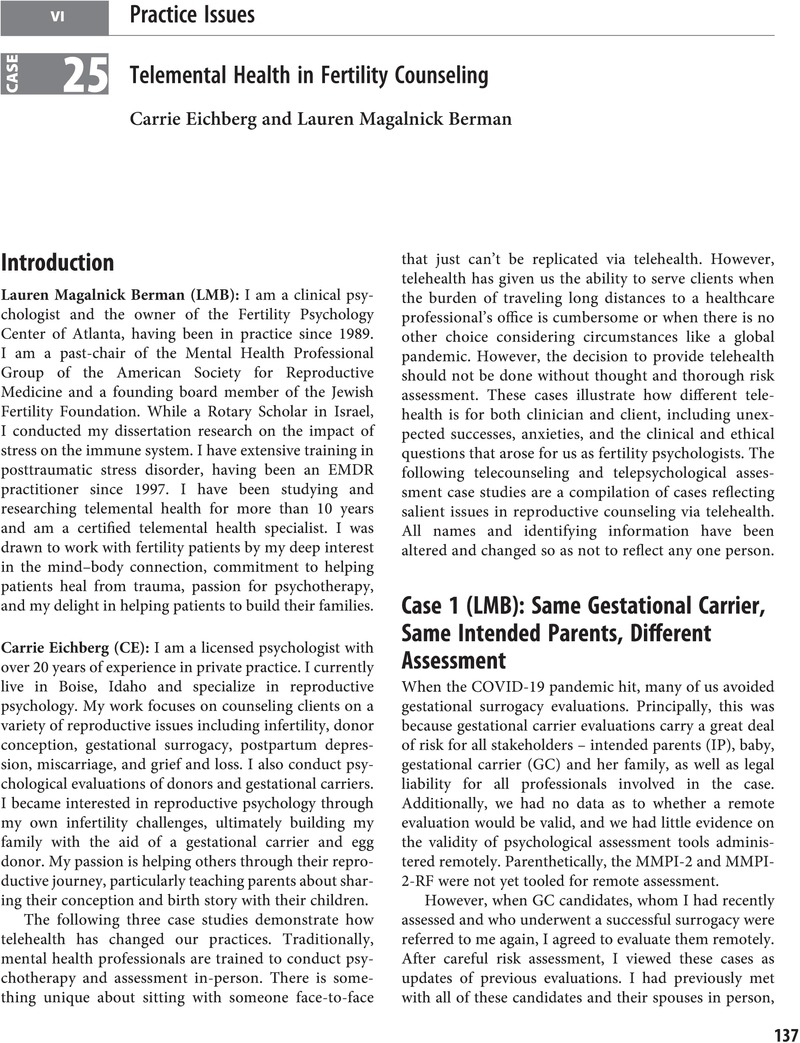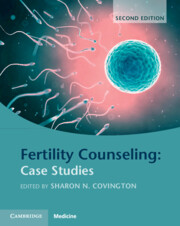Book contents
- Fertility Counseling: Case Studies
- Fertility Counseling: Case Studies
- Copyright page
- Dedication
- Contents
- Preface
- Contributors
- Part I Introduction
- Part II Therapeutic Approaches
- Part III Third Party Reproduction: Assessment and Preparation
- Part IV Addressing the Needs of Diverse Populations
- Part V Special Topics in Fertility Counseling
- Part VI Practice Issues
- Index
- References
Part VI - Practice Issues
Published online by Cambridge University Press: 24 November 2022
- Fertility Counseling: Case Studies
- Fertility Counseling: Case Studies
- Copyright page
- Dedication
- Contents
- Preface
- Contributors
- Part I Introduction
- Part II Therapeutic Approaches
- Part III Third Party Reproduction: Assessment and Preparation
- Part IV Addressing the Needs of Diverse Populations
- Part V Special Topics in Fertility Counseling
- Part VI Practice Issues
- Index
- References
Summary

- Type
- Chapter
- Information
- Fertility Counseling: Case Studies , pp. 137 - 155Publisher: Cambridge University PressPrint publication year: 2022



